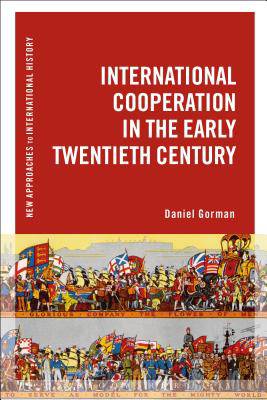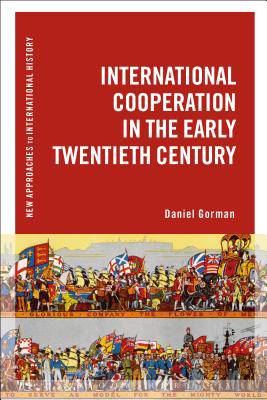
- Afhalen na 1 uur in een winkel met voorraad
- Gratis thuislevering in België vanaf € 30
- Ruim aanbod met 7 miljoen producten
- Afhalen na 1 uur in een winkel met voorraad
- Gratis thuislevering in België vanaf € 30
- Ruim aanbod met 7 miljoen producten
Zoeken
International Cooperation in the Early Twentieth Century
Daniel Gorman
€ 79,95
+ 159 punten
Uitvoering
Omschrijving
The early 20th-century world experienced a growth in international cooperation. Yet the dominant historical view of the period has long been one of national, military, and social divisions rather than connections. International Cooperation in the Early Twentieth Century revises this historical consensus by providing a more focused and detailed analysis of the many ways in which people interacted with each other across borders in the early decades of the 20th century. It devotes particular attention to private and non-governmental actors.
Daniel Gorman focuses on international cooperation, international social movements, various forms of cultural internationalism, imperial and anti-imperial internationalism, and the growth of cosmopolitan ideas. The book incorporates a non-Western focus alongside the transatlantic core of early 20th-century internationalism. It interweaves analyses of international anti-colonial networks, ideas emanating from non-Western sites of influence such as Japan, China and Turkey, the emergence of networks of international indigenous peoples in resistance to a state-centric international system, and diaspora and transnational ethno-cultural-religious identity networks.Specificaties
Betrokkenen
- Auteur(s):
- Uitgeverij:
Inhoud
- Aantal bladzijden:
- 288
- Taal:
- Engels
- Reeks:
Eigenschappen
- Productcode (EAN):
- 9781472567949
- Verschijningsdatum:
- 21/03/2019
- Uitvoering:
- Paperback
- Formaat:
- Trade paperback (VS)
- Afmetingen:
- 156 mm x 234 mm
- Gewicht:
- 494 g

Alleen bij Standaard Boekhandel
+ 159 punten op je klantenkaart van Standaard Boekhandel
Beoordelingen
We publiceren alleen reviews die voldoen aan de voorwaarden voor reviews. Bekijk onze voorwaarden voor reviews.







